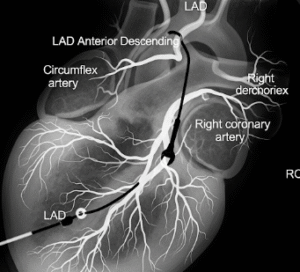Overview
Bowel cancer, also known as colorectal cancer, is a malignant tumor that develops in the large intestine (colon) or rectum. It is one of the most common cancers in Korea, with incidence increasing with age and lifestyle factors. Early detection is critical, as the prognosis improves significantly with timely intervention.
Korean healthcare emphasizes screening programs, advanced diagnostic imaging, minimally invasive surgery, and targeted therapies. Hospitals and cancer centers in Korea provide comprehensive care, including surgery, chemotherapy, radiation therapy, and post-treatment rehabilitation, ensuring optimal outcomes for patients.
What is Bowel Cancer?
Bowel cancer arises when cells in the colon or rectum grow uncontrollably, forming polyps that can become malignant over time. The cancer can:
- Develop in any part of the colon but commonly affects the sigmoid colon and rectum
- Spread locally or to other organs such as the liver, lungs, or lymph nodes
- Progress slowly, often beginning as small benign polyps before becoming cancerous
Bowel cancer is classified based on location, type, and stage, which guides treatment planning and prognosis.
Symptoms
Symptoms may vary depending on tumor location, size, and progression:
- Change in bowel habits: Diarrhea, constipation, or alternating patterns
- Blood in stool: Bright red blood or darker, tarry stools
- Abdominal discomfort: Cramping, bloating, or persistent pain
- Unexplained weight loss and fatigue
- Feeling of incomplete bowel emptying
- Narrow stools or changes in stool shape
- Iron-deficiency anemia caused by chronic blood loss
Early stages may be asymptomatic, making regular screening essential, especially for high-risk individuals.
Causes
Bowel cancer develops due to genetic, environmental, and lifestyle factors:
- Genetic mutations: Changes in oncogenes and tumor suppressor genes that control cell growth
- Family history: Higher risk if a first-degree relative has bowel cancer or polyps
- Lifestyle factors: High-fat, low-fiber diet, smoking, excessive alcohol, and sedentary lifestyle
- Chronic inflammation: Conditions like ulcerative colitis or Crohn’s disease increase risk
- Age-related changes: Cell repair mechanisms become less efficient with age
Risk Factors
- Age: Most cases occur in people over 50
- Family history of colorectal cancer or adenomatous polyps
- Inflammatory bowel disease (IBD)
- Diet high in red or processed meats
- Sedentary lifestyle and obesity
- Smoking and excessive alcohol consumption
- Genetic syndromes: Lynch syndrome or familial adenomatous polyposis (FAP)
Complications
If untreated or diagnosed late, bowel cancer can lead to serious complications:
- Bowel obstruction: Tumor growth blocks the passage of stool
- Perforation of the bowel: Leading to peritonitis, a life-threatening infection
- Spread to other organs (metastasis): Commonly liver and lungs
- Severe anemia: From chronic blood loss
- Chronic pain and weight loss
- Decreased quality of life and functional impairment
Prevention
While some risk factors are non-modifiable, preventive strategies can significantly reduce risk:
- Regular screening: Colonoscopy or fecal occult blood tests for early detection
- Healthy diet: High in fiber, fruits, and vegetables; low in processed and red meats
- Regular physical activity
- Maintain a healthy weight
- Avoid smoking and limit alcohol intake
- Manage chronic inflammatory bowel disease with medical supervision
- Genetic counseling for individuals with family history or known syndromes
Treatment Options in Korea
Diagnosis
Accurate and early diagnosis is vital for effective treatment:
- Colonoscopy: Gold standard for detecting polyps and early tumors
- CT colonography: Imaging alternative for patients unable to undergo colonoscopy
- Biopsy: Confirms cancer type and grade
- Blood tests: Including carcinoembryonic antigen (CEA) levels for monitoring
- Imaging: CT, MRI, and PET scans to detect metastasis and staging
Surgical Management
Surgery is often the primary treatment for bowel cancer in Korea:
- Colectomy: Removal of part or entire colon depending on tumor location
- Laparoscopic or robotic surgery: Minimally invasive options for faster recovery
- Colostomy or ileostomy: Temporary or permanent diversion if necessary
- Lymph node removal: To assess spread and improve prognosis
Medical Management
- Chemotherapy: Used post-surgery or for advanced stages to kill remaining cancer cells
- Targeted therapy: Drugs such as anti-VEGF or EGFR inhibitors for specific genetic profiles
- Immunotherapy: For tumors with specific mutations (e.g., microsatellite instability)
- Radiation therapy: Primarily for rectal cancers to shrink tumors before surgery or prevent recurrence
Supportive Care
- Nutritional support: Ensures adequate caloric and protein intake during treatment
- Pain management: Analgesics and palliative care for advanced disease
- Physical rehabilitation: Helps restore mobility and energy
- Psychological counseling: Addresses anxiety, depression, and coping strategies
- Follow-up monitoring: Regular imaging and blood tests to detect recurrence
Prognosis
Prognosis depends on stage at diagnosis, tumor type, and patient health:
- Early-stage bowel cancer: High survival rates with surgery and adjuvant therapy
- Advanced-stage or metastatic cancer: Requires combination therapy; prognosis is variable
- Korean hospitals are equipped with advanced diagnostic, surgical, and medical oncology services, improving survival and quality of life
- Lifestyle modifications and adherence to follow-up significantly reduce recurrence and improve outcomes













